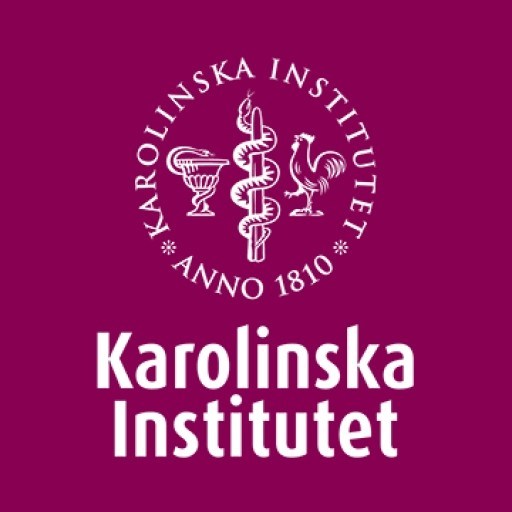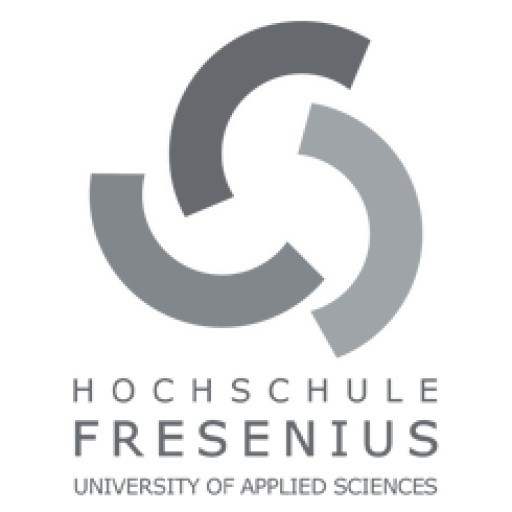Photos of university / #lundsuniversitet
The Master's Programme in Biomedicine at Lund University offers an in-depth education designed for students interested in understanding the complex mechanisms underlying human health and disease. This programme provides a comprehensive overview of biomedical sciences, combining theoretical knowledge with practical skills to prepare students for a wide range of careers in research, healthcare, and the biomedical industry. Over the course of two years, students will explore various disciplines such as molecular biology, physiology, pharmacology, pathology, and immunology, gaining a holistic understanding of the human body and its responses to different stimuli. The curriculum emphasizes experimental techniques, data analysis, and critical assessment of scientific literature, ensuring graduates are well-equipped to contribute to advancements in medicine and health sciences. Students have the opportunity to work in cutting-edge laboratories and collaborate with research groups focusing on areas like cancer, neuroscience, cardiovascular research, and infectious diseases. The programme also includes courses on ethics and research methodology, preparing students to conduct responsible and impactful scientific studies. Lund University’s strong connections with hospitals, research institutes, and biotech companies provide students with valuable networking opportunities and exposure to real-world applications of biomedical research. Graduates of the programme will possess the knowledge and skills necessary to pursue careers such as research scientists, clinical researchers, biomedical analysts, or continue their education in doctoral studies. The diverse and international environment at Lund University encourages collaboration and cultural exchange, enriching the learning experience. Whether aiming for a career in academia, industry, or healthcare, students complete the programme with a solid foundation in biomedical sciences and the ability to address contemporary biological and medical challenges.
The Master’s Programme in Biomedicine at Lund University offers an in-depth exploration of the complex systems that underpin human health and disease. Designed for students who are passionate about understanding the biological basis of health, this programme provides a multidisciplinary approach that combines biology, medicine, pharmacology, and biotechnology. Throughout the programme, students will gain comprehensive knowledge of molecular and cellular mechanisms, disease pathways, and experimental techniques used in contemporary biomedical research.
The programme is structured to equip students with both theoretical understanding and practical skills. In the first year, students undertake courses that cover the fundamentals of human biology, physiology, cell biology, genetics, and biochemistry. These courses lay the groundwork for understanding how biological systems function and how their malfunction can lead to disease. Students also engage in laboratory work, learning essential techniques in molecular biology, cell culture, microscopy, and data analysis.
In the second year, students have the opportunity to specialize in areas such as molecular medicine, pharmacology, neuroscience, or cancer biology. They can choose elective courses to tailor their education to their specific interests and career goals. A significant component of the second year involves a research internship or thesis project, which allows students to work closely with faculty researchers on cutting-edge projects in biomedical science.
The programme emphasizes critical thinking, problem-solving, and the ability to communicate scientific findings effectively. The teaching methods include lectures, seminars, laboratory exercises, and project work, fostering a collaborative learning environment. With a focus on translational research, students are encouraged to consider how biomedical discoveries can be transformed into clinical applications and new therapies.
Graduates from the Master’s Programme in Biomedicine are well-prepared for careers in research, biotechnology, pharmaceuticals, or health care, or for continuing studies in a PhD programme. The extensive network at Lund University also provides opportunities for international collaboration and internships, enriching students’ academic and professional experience.
Overall, this programme offers a rigorous and stimulating education in biomedicine, equipping students with the knowledge and skills needed to contribute to advancements in health and medicine.
Program requirements for the Master's Programme in Biomedicine at Lund University typically include a Bachelor's degree or the equivalent in a relevant field such as Biology, Medical Science, or Biomedical Sciences. Applicants are expected to have completed coursework in biology, chemistry, and related disciplines, demonstrating a solid foundation in scientific methods and analytical skills. English language proficiency is mandatory, with tests such as TOEFL or IELTS accepted to verify adequate language skills. The program may also require a statement of purpose outlining the applicant's motivation and interest in biomedicine, as well as a résumé or CV highlighting academic and research experiences. In some cases, relevant work or research experience in biomedical laboratories can enhance the application. The selection process considers academic transcripts, relevant coursework, and potential research interests aligning with the programme's focus.
Applicants are advised to submit official transcripts, proof of language proficiency, and any supplementary documents by the specified application deadlines. There may also be specific prerequisites such as courses in cell biology, physiology, or genetics, which strengthen an applicant’s eligibility. International students must ensure that their qualifications meet the Swedish university entrance requirements, and they should verify if additional documentation is needed for visa applications. For competitive admission, applicants are encouraged to demonstrate strong analytical skills, motivation for research, and a clear understanding of biomedicine challenges. It is recommended to review the detailed entry requirements on the official Lund University website to ensure all criteria are met and to prepare a comprehensive application package.
Finance for the Biomedicine program at Lund University typically involves a combination of tuition fees and various funding options. For students coming from outside the European Union (EU) or European Economic Area (EEA), tuition fees apply, which vary depending on the specific program and year of admission. International students can expect to pay approximately 140,000 SEK per academic year for master's programs in the biomedical sciences in general, though students should verify the exact fee for the Biomedicine program directly on Lund University's official website or admissions materials.
In terms of scholarships and financial aid, Lund University offers several scholarships aimed at international students. The Lund University Global Scholarship covers a significant portion of the tuition fees for non-EU/EEA students and is awarded based on academic merit. This scholarship can cover 25%, 50%, 75%, or even 100% of the tuition fee, depending on the applicant's qualifications. There are also other scholarships available, such as the Lund University Global Scholarship Program, which considers both academic excellence and leadership potential.
International students are encouraged to seek external funding as well. Many governments, foundations, and organizations offer grants and loan programs for students studying abroad, which can help cover living expenses and other costs associated with studying at Lund University. It is advisable to explore options from one’s home country, as well as international scholarship databases.
Students should also consider the cost of living in Lund, which is generally moderate compared to larger Swedish cities like Stockholm or Gothenburg. The estimated living expenses—including accommodation, food, transportation, and study materials—are approximately 10,000 to 12,000 SEK per month. Students should budget accordingly and explore student accommodation options early to secure affordable housing.
Lund University also provides guidance and support for students seeking employment during their studies. Part-time work can help offset living costs, and the university’s job portal offers opportunities for students to find suitable positions on or near campus.
In summary, studying Biomedicine at Lund University involves paying tuition fees for non-EU/EEA students, with opportunities for scholarships to reduce costs. Additional financial planning should include living expenses and potential earnings from part-time work. Students are advised to rigorously explore scholarship opportunities early and plan their finances well in advance to ensure a smooth and successful academic experience.
The Biomedicine program at Lund University is a comprehensive and interdisciplinary degree designed to provide students with in-depth knowledge of human biology, medical sciences, and molecular techniques. The program aims to prepare students for a variety of careers within healthcare, research, and the pharmaceutical industry, emphasizing both theoretical understanding and practical skills. Throughout the course, students explore topics such as cell biology, genetics, physiology, biochemistry, and pathology, gaining insights into how the human body functions and how diseases develop and can be treated. The curriculum is structured to foster critical thinking, research competence, and the ability to analyze complex biological data.
Students have access to modern laboratories and research facilities, which allows hands-on experience with advanced techniques like molecular biology, microscopy, and bioinformatics. The program also emphasizes the importance of understanding ethical considerations, scientific communication, and the societal impact of biomedical research. Collaboration with external partners, including hospitals and research institutions, provides students with valuable real-world insights and opportunities to engage in research projects. The program is conducted in English and is designed to prepare students for postgraduate studies or employment within biotech, pharmaceuticals, healthcare, or academic research sectors.
Prospective students are encouraged to engage in internships or project work, which are integrated into the curriculum, to enhance their practical skills and professional networks. Graduates of the Biomedicine program often proceed to master’s programs or PhDs, where they can specialize further in areas such as molecular medicine, pharmacology, or biomedical engineering. The program also emphasizes lifelong learning and adaptability, equipping students with a solid foundation for evolving scientific fields and industry demands. Overall, Lund University’s Biomedicine program offers a rigorous, research-based education tailored to those passionate about understanding human health and contributing to medical advancements.










